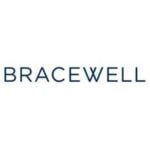-
Does your jurisdiction have an established upstream oil and gas industry? What are the current production levels and what are the oil and gas reserve levels?
Ghana’s upstream oil and gas industry is well-established, with production occurring in three main fields: Jubilee, Sankofa Gye-Nyame (Sankofa), and Tweneboa-Enyenra-Ntomme (TEN). These fields are in the Tano Basin and Cape Three Points Basin (both located in the Western Region and together referred to as the Western Basin), the Saltpond Basin in the Central Region, the Accra/Keta Basin, and the inland Voltaian Basin.
Petroleum in its natural state, whether onshore or offshore, is vested in the Republic of Ghana and held in trust by the President for the people of Ghana.
Oil and gas exploration in Ghana began in 1896 in the Tano Basin in the Western Region, prompted by onshore seepages discovered by early explorers. Significant commercial production commenced in 2010 following a 2007 discovery by the Ghana National Petroleum Corporation (GNPC) and a consortium of International Oil Companies (IOCs) comprising Tullow Oil, Kosmos Energy, Anadarko Petroleum, and EO Group in the Jubilee Field, located 65 km offshore in the Deepwater Tano and West Cape Three Points blocks at depths of 1,000–1,300 meters. Production expanded with the TEN Field in 2016 (depths up to 4,000 meters) and the Sankofa Field in 2017.
Following the discovery of commercial oil quantities in Ghana in 2007, Ghana has made over 26 more discoveries in the Western Basin which include the Mahogany Deep (2009), Teak-1, Teak-2 (2011) and Akasa (2011) in the West Cape Three Points Block; Tweneboa-1 (2009), Tweneboa-2 (2010), Enyenra (2010), Ntomme (2012), and Wawa (2012) in the Deepwater Tano Block; Sankofa-1 (2009), Gye Nyame-1 (2011), and Sankofa East (2012), Beech-1 (2012), Cob-1 (2013) and PN-1 (2013), Pecan South 1A (2019) in the Deepwater Tano Cape Three Points block; and the Akoma 1X in Cape Three Points Block 4 (2019).
The country hosts 3 producing projects which are:
- The Jubilee Field operated by Tullow Oil and with an estimated reserve of 278.66 million barrels (mmbbls) of oil and 271.47 billion cubic feet (Bcf) of gas;
- Offshore Cape Three Points (OCTP) operated by ENI/Vitol with an estimated reserve of 108 mmbbls of oil and 910.4 Bcf of gas; and
- TEN operated by Tullow Oil with an estimated reserve of 108.26 mmbbls of oil and 910 Bcf of gas.
The total oil reserves for the country from the oil producing fields at the end of 2023 is estimated by the Petroleum Commission at about 1,813 MMbbl with 1,081.9 MMbbl as contingent and 732 as proven and probable reserves. In this amount, the Jubilee field makes up 43%, TEN field makes up 12%, Sankofa has 11% whilst other reserves such as the Pecan field and resources from the four active blocks make up 34%. From January to September 2024, oil production peaked in March at 98,592.03 barrels per day (bbl/d) and declined to its lowest level in September at 84,611.53 bbl/d. Ghana’s gas reserves are estimated at 4,100 billion cubic feet (Bcf), comprising 2,329 Bcf of contingent reserves and 1,771 Bcf of proven and probable reserves. The Jubilee field makes up 28% of the gas reserves, TEN field makes up 25%, Sakofa makes 47% whilst other fields such as the Pecan field and resources from the four active blocks make the remaining percentage. Gas production during the same period peaked in August at 245.19 million standard cubic feet per day (MMscf/d) and reached its lowest level in May at 223.82 MMscf/d.
A fourth oil field which is emerging in the country and known as the Pecan conventional oil development is expected to begin its production in 2025.
-
How are rights to explore and exploit oil and gas resources granted? Please provide a brief overview of the structure of the regulatory regime for upstream oil and gas. Is the regime the same for both onshore and offshore?
In Ghana, all mineral resources, including petroleum, are vested in the President and held in trust for the people. Petroleum activities may only occur in designated open areas under a license or petroleum agreement executed between , the Republic of Ghana, the Ghana National Petroleum Corporation (GNPC) and the corporate entity. The Petroleum (Exploration and Production) Act, 2016 (Act 919) requires the Minister to prepare a reference map showing areas of potential petroleum fields within Ghana divided into numbered areas (blocks).
While most agreements are granted through a transparent and competitive public tender process, the Minister of Energy, in consultation with the Petroleum Commission, may authorize direct negotiations. In either case, no petroleum agreement is effective without Parliamentary ratification, and no company may operate in the upstream petroleum sector without a valid registration permit from the Petroleum Commission.
The Government of Ghana, in October 2018 launched the country’s maiden oil and gas licensing bidding rounds with 6 blocks in the Tano/Cape Three Points (Western Basin).
Ghana’s upstream petroleum sector operates under a structured regulatory framework with distinct roles assigned to various entities. The sector is regulated by institutions that have both legal and statutory authority to oversee the effective management of the petroleum resources owned by Ghana. These institutions include:
- The Ministry of Energy, which is responsible for national policies on petroleum activities. The Ministry formulates policies, supervises and oversees the sector.
- The Petroleum Commission regulates technical and operational activities.
- The Environmental Protection Agency, which regulates all matters pertaining to preserving the environment.
- The Public Interest and Accountability Committee (PIAC), which is an independent statutory body mandated to promote transparency and accountability in the management of petroleum revenues in Ghana.
- The Ghana Gas Company Limited (G) develops and operates gas infrastructure. and
- GNPC, as the national oil company, holds a minimum initial free carried interest of 15% in exploration and development for oil.
The Government of Ghana first introduced its legislative framework for upstream petroleum activities in the mid-1980s. Three main legislations, including the Ghana National Petroleum Corporation Act, 1983 (PNDCL 64) which established the Ghana National Petroleum Corporation as the national oil company were enacted to regulate upstream activities. The other two legislations, that is, the Petroleum (Exploration and Production) Law, 1984 (PNDCL 84) and the Petroleum Income Tax Law, 1987 (PNDCL 188) have since been repealed and replaced with new applicable legislations.
Upon the discovery of oil in commercial quantities, the Petroleum Commission Act, 2011 (At 821) was enacted to set up the Petroleum Commission as the regulator for activities in the upstream petroleum sector in accordance with the Constitution of Ghana, 1992 which is the supreme law of Ghana. The Petroleum Revenue Management Act, 2011 (Act 815) as amended by the Petroleum Revenue Management (Amendment) Act, 2015 (Act 893) was further enacted to provide the framework for the management of petroleum revenues in Ghana. The Income Tax Act, 2015 (Act 896) as amended provides a regime for the taxation of income of contractors and subcontractors. The Petroleum (Exploration and Production) Act, 2016 (Act 919) was later enacted to replace PNDCL 84 as the primary legislation regulating petroleum activities in the upstream sector.
Additionally, the government of Ghana, acting through the Minister of Energy and the Petroleum Commission have enacted several regulations and have developed a number of guidelines and policies to further regulate and support the implementation of the laws within the sector.
This regime is same for both onshore and offshore production basins.
-
What are the key features of the licence/production sharing contract/concession/other pursuant to which oil and gas companies undertake oil and gas exploration, development and production?
Ghana operates a hybrid of a royalty-tax system and a production sharing agreement. The key features of the agreement under which oil and gas companies undertake oil and gas exploration, development and production are:
- Reconnaissance license: The Minister of Energy has the right to grant petroleum reconnaissance license for a period not exceeding 3 years but can be renewed for a further 2 years.
- Operators: The Minister of Energy must approve the operator before the execution of the Petroleum Agreement.
- Royalties: Ghana receives a percentage of the gross production as the resource owner without contributing to the cost of production. This exact figure is usually decided by negotiation.
- Carried interest: The GNPC holds a 15% carried interest in the exploration and development phase of all petroleum agreements. This carried interest becomes a paid interest during the production phase.
- Joint Management Committee: The parties must establish a joint management committee to oversee and supervise the petroleum operations no later than 30 days after the effective date of the contract.
- Pre-emptory rights: The GNPC has the pre-emptory right to acquire of a contractor under a petroleum agreement within 90 days of the contractor’s notification of its intention to dispose of interest.
- Borrowings: Any borrowing exceeding US$30 million for the exploration, development and production must be subjected to approval by Parliament and comply with Act 815.
- Licensing and Permits: The contractors must obtain permits for exploration drilling and an annual permit for petroleum production. The contractors must also obtain a license to install and operate facilities for the transportation, treatment and storage of petroleum.
-
Are there any unconventional hydrocarbon resources (such as shale gas) being developed and produced and is there a separate regulatory regime for those unconventional resources?
Ghana does not develop and produce any unconventional hydrocarbon resource.
-
Who are the key regulators for the upstream oil and gas industry?
The key regulators for the upstream oil and gas industry include:
- The Ministry of Energy, which oversees all petroleum activities in the sector.
- The Petroleum Commission which acts as the main regulatory body issuing permits and promoting local content requirements.
- The Environmental Protection Agency (EPA) which enforces health, safety and environmental standards.
- GIPC –
- Energy Commission formulates national policies for the development and utilization of indigenous energy resources, including natural gas. It prescribes standards of performance and technical and operational rules for the supply and distribution of electricity and natural gas to consumers.
- Ghana Revenue Authority, which collects revenue from corporate entities in regards to dealings in the industry.
- The Public Interest and Accountability Committee (PIAC) which ensures the transparency in the management of petroleum revenue.
-
Is the government directly involved in the upstream oil and gas industry? Is there a government-owned oil and gas company?
The Government of Ghana actively participates in the upstream oil and gas industry through its national entities. The GNPC serves as the national oil company, while the GNGC functions as the national gas company. Furthermore, Jubilee Oil Holdings Limited (JOHL) an offshore company incorporated as a subsidiary of the GNPC, formed in 2021 currently owns and manages Ghana’s seven percent (7%) commercial interest in the Jubilee and TEN oil fields.
JOHL is a 100% subsidiary of the GNPC registered under the Companies Act, 2019 (Act 992). Due to the cumbersome nature of approvals required by the parliament of Ghana before GNPC takes any actions, the GNPC undertook its various operations through JOHL such as the Explorco cash calls on Springfield, ENI Block 4 at US$5,546,419. In 2024, the parliament of Ghana through the Committee on Mines and Energy directed the GNPC to transfer its shares in JOHL to its subsidiary company, GNPC Explorco.
-
Are there any special requirements for, or restrictions on, participation in the upstream oil and gas industry by foreign oil and gas companies?
Yes, there are special requirements and restrictions for foreign oil and gas companies seeking to participate in the upstream oil and gas industry in Ghana. These requirements are outlined in the Petroleum (Exploration and Production) Act, 2016 (Act 919), the Petroleum Commission Act, 2011 (Act 821) and other relevant regulations. Below are a few key requirements or restrictions:
- Local Content and Participation: Foreign companies are required to partner with a Ghanaian company that holds at least 5% equity participation. A non-indigenous Ghanaian company can only operate in the upstream oil and gas industry through a joint venture with an indigenous Ghanaian company or companies. The indigenous Ghanaian company must have a minimum of ten percent (10%) equity participation in the joint venture company. Companies must also comply with the local content regulations which mandate the use of local goods and services amongst others.
- Registration with the Ghana Investment Promotion Centre (GIPC): Companies in Ghana with foreign ownership or participation are required to register with the GIPC.
-
What are the key features of the environmental and health and safety regime that applies to upstream oil and gas activities?
The key features applicable to the environmental, health and safety regime that applies to upstream oil and gas activities include:
- Environmental Impact Assessment: An environmental impact assessment must be conducted before petroleum activities must be conducted in area.
- Liability for pollution: Every corporation, contractor, sub-contractor, licensee or any other person engaged in a petroleum activity is strictly liable for any pollution damage caused by or resulting from petroleum activities.
- Health and Safety Plan: Every corporation, contractor, sub-contractor, licensee or any other person engaged in a petroleum activity shall submit to the commission a health and safety plan which is adapted to the scope of the petroleum activities.
- Qualifications of persons engaged in a petroleum activity: Every contractor, sub-contractor, licensee or any other person engaged in a petroleum activity has a duty to ensure that all persons engaged in that petroleum activity are qualified to fulfil the regulatory requirements relating to health, safety and the environment and comply with the regulatory requirements when performing the petroleum activity.
-
How does the government derive value from oil and gas resources (royalties/production sharing/taxes)? Are there any special tax deductions or incentives offered?
Government of Ghana derives value from oil and gas resources in a number of ways:
- Income tax: Companies in the upstream petroleum industry are obligated to pay taxes with rates often prescribed in the petroleum agreements. Initial petroleum agreements offered five (5) year tax incentives to corporations. This regime is no longer in use as policy of the government. As such in In January 2025, Tullow Oil was exempted from a $320 million Branch Profit Remittance Tax (BPRT), a beneficiary of the initial regime, following a ruling by the International Chamber of Commerce, which determined that BPRT did not apply to Tullow’s operations under specific petroleum agreements.
- Royalties: Ghana is paid royalties in the form of a percentage of the gross volume of petroleum produced and saved notwithstanding whether the petroleum produced is profitable or not. Royalties are either paid in cash or kind, generally in the form of oil.
- Payment for rental of government property, public lands or for provision of specific services requested from public enterprises by the contractor.
There are a number of tax deductions and incentives. These include:
- The contractor shall not be liable for any export tax on petroleum exported from Ghana and no duty or other charge shall be leveraged on such exports.
- Contractors or sub-contractors may import into Ghana all plants, equipment, and materials to be used solely and exclusively in the conduct of petroleum operations without the payment of taxed, custom duties, and other charges on imports expert minor administrative charges.
- Foreign national employees or the contractor sub-contractor or their affiliates shall be permitted to import into Ghana, free of import duty, their personal and household effects and shall have the right to export from Ghana these previously imported items without an export duty.
However, companies engaged in petroleum operations are subject to a higher corporate income tax rate of 35% as opposed to 25% charged as a standard for corporate income tax.
-
Are there any restrictions on export, local content obligations or domestic supply obligations?
Yes, Contractors can only export petroleum under the terms contained in the petroleum agreement to which they are subscribed. Ghana does not export gas to yet the international market.
Contractors may only export petroleum in accordance with the terms of their petroleum agreements. Notably, Ghana does not export gas to the international market.
Foreign entities seeking participation in the petroleum sector must register with the Ghana Investment Promotion Centre (GIPC) and adhere to the Petroleum (Local Content and Local Participation) Regulations, 2013 (LI 2204). Local content under LI 2204 is addressed under 5 main areas which are: employment and training of nationals, local industries or goods and services, research and development, technology transfer, and compliance and enforcement.
Under the Regulations, contactors and sub-contractors are to ensure that Ghanaians with the requisite expertise and qualifications are employed in preference to foreign nationals. The Contractor must also prepare and implement plans and programmes for training the Ghanaians in all aspects of petroleum operations. Contractors are further required to pay agreed sums to the state for training and technology support for building local capacity, and to provide training for a mutually agreed number of people nominated by the GNPC to be seconded for on job training with the contractor when requested.
These regulations require a minimum of 5% Ghanaian equity participation for foreign companies in order to qualify to enter a petroleum agreement or obtain petroleum licenses. The Petroleum Commission is also tasked with the promotion of local content and local participation in petroleum activities under the Petroleum Commission Act, 2011 (Act 821). In this regard, there is established a local content committee that deals with local content programme.
Additionally, operators are required to use goods and services produced or provided in Ghana for their services as far as practicable. They are required to do this by giving priority to purchases from citizens of Ghana, local products and services that are competitive in terms of price, quality and timely availability.
-
Does the regulatory regime include any specific decommissioning obligations?
A licensee or contractor operating a petroleum facility must submit a decommissioning plan to the Minister, who shall seek advice from the Petroleum Commission. Unless otherwise determined by the Minister, the plan must be submitted no earlier than five years and no later than two years before the anticipated cessation of the facility’s operations or the expiration of the related license or petroleum agreement.
In cases of early termination of the license or agreement, the decommissioning plan must be submitted as soon as practicable, and no later than 19 days after termination. The plan must include a detailed proposal outlining the cessation of operations, disposal of petroleum facilities, or their continued use in petroleum activities.
-
What is the regulatory regime that applies to the construction and operation of offshore and onshore oil and gas pipelines?
The operation of gas pipelines is governed by the Natural Gas Transmission Access Code (NGTAC) and the Natural Gas Pipeline Safety Regulation, 2012 (LI2189).
-
What is the regulatory regime that applies to LNG liquefaction plants and LNG import terminals? Are there any such liquefaction plants or import terminals in your jurisdiction?
Ghana, in partnership with private sector entities including Rosneft and Helios Investment Partners, has established the Tema LNG Terminal Company (TLTC) to develop, construct, and operate an LNG import terminal.
The regulatory regime applicable to LNG liquefaction plants and LNG import terminals is a combination of the general energy sector laws, natural gas regulations and environmental policies. The regulations are overseen by the Ministry of Energy, Petroleum Commission and the Energy commission, with environmental oversight from the Environmental Protection Agency.
Under the Energy Commission Act, 1997 (Act 541), LNG Liquefaction plants and import terminals must be licensed by the Energy Commission which regulates the technical and operational aspects of energy infrastructure and ensures compliance with technical standards in Ghana. The Energy Commission also monitors the performance of the facilities. Secondly, although Act 919 is primarily focused on upstream petroleum activities, it governs all petroleum related resources including gas. Therefore, all LNG related activities must conform to the dictates of the Act.
The Environmental Protection Agency (EPA) also regulates the environmental aspects. In this regard, companies are required to obtain an environmental permit from the EPA prior to the construction and operation of LNG facilities. LNG facilities including liquefaction plants and import terminals must comply with the environmental laws and, environmental and social impact assessments must be conducted to ensure that LNG projects do not harm the environment or local communities.
LNG companies are also required to adhere to health and safety standards under guidelines by the Petroleum Commission who also oversees the midstream activities such as the construction, operation and maintenance of the LNG infrastructure.
The GPHA regulates the terminal’s siting and operations within Tema Port. The Ghana Maritime Authority oversees port activities related to LNG imports whilst ensuring compliance with marine safety and port regulations.
The GNGC is the national aggregator for natural gas and plays a central role in coordinating LNG infrastructure projects.
-
What is the regulatory regime that applies to gas storage (not LNG)? Are there any gas storage facilities in your jurisdiction?
Natural gas storage is governed by Petroleum (Exploration and Production) Act, 2016 (Act 919). In Ghana, a person cannot install or operate a facility for transportation, treatment or storage of petroleum without license granted by the Minister unless there is an existing plan to install and operate the facility derived from the approval of a plan of development and operation.
The Energy Commission is the primary authority responsible for issuing licenses for natural gas storage facilities. In this regard, companies intending to build, operate, or maintain natural gas storage facilities in Ghana must obtain the relevant licensing from the Energy Commission.
Under the regulatory regime, the Petroleum Commission also ensures that operators of natural gas storage facilities comply with the requisite technical, environmental and safety requirements. The operators of the facility must also collaborate with the GNGC to integrate their operations into the broader natural gas supply chain.
Furthermore, in Ghana, companies intending to construct or operate natural gas storage facilities must obtain an environmental permit from the Environmental Protection Agency. Prior to obtaining the permit, the operators are required to conduct an environmental impact assessment (EIA) to assess the potential environmental and social impacts of the storage facilities and propose mitigation measures.
-
Is there a gas transmission and distribution system in your jurisdiction? How is gas distribution and transmission infrastructure owned and regulated? Is there a third party access regime?
Yes, Ghana has a gas transmission and distribution system in place, though it is still developing. The infrastructure primarily focuses on transmitting natural gas from production points, such as offshore oil and gas fields to power plants and industrial facilities. The Natural gas transmission is regulated by the Energy Commission under Act 541 and L.I.1913.
The West African Gas Processing (WAGP) Company is the primary transmission utility for cross-border natural gas sales and deliveries in West Africa. Ghana also has a domestic gas transmission network managed by the GNGC which includes the Aboadze Gas Pipeline which transports gas from processing plants at Atuabo to the Aboadze power enclave and other facilities and the Takoradi-Tema Interconnection Project (TTIP) which is a pipeline interconnection linking the Western Region gas infrastructure to power plants in Tema in the Eastern Region.
The transmission and distribution of gas in Ghana is regulated under the Energy Commission Act, 1997 (Act 541) which authorizes the Energy Commission to regulate technical and operational aspects of gas transmission and distribution in Ghana. Companies must obtain licenses from the commission in order to own or operate a gas infrastructure.
-
Is there a competitive and privatised downstream gas market or is gas supplied to end-customers by one or more incumbent/government-owned suppliers? Can customers choose their supplier?
Yes, there is a competitive and privatised downstream gas market in Ghana. Ghana’s owned GOIL is a participant in the gas market. Customers are free to choose their supplier and petroleum retail prices are determined by the Deregulated Pricing Mechanism (DPM) for petroleum products.
-
How is the downstream gas market regulated?
The downstream gas sector is regulated by key state institutions such as:
- The Ghana National Gas Company, which is responsible for gathering, processing, transporting and marketing natural gas. The GNGC also operates processing plants like the Atuabo Gas Processing Plant.
- The National Petroleum Authority which oversees pricing and ensures efficiency and sustainability in the downstream sector.
- The Energy Commission which regulates the operation of a distribution network and issues licenses for the distribution, transportation, and sale of natural gas in designated areas or zones specified in the license.
- The EPA which ensures compliance with environmental regulations. and
- Public Utilities Regulatory Commission (PURC) which regulates the tariffs and oversees the quality of services in the downstream gas industry.
-
Have there been any significant recent changes in government policy and regulation in relation to the oil and gas industry?
Yes, in 2024, the Parliament of Ghana considered the National Petroleum Authority Bill which aims to replace the National Petroleum Authority Act, 2005 (Act 691). The bill seeks to re-establish the NPA and consolidate laws related to the downstream petroleum industry. The proposed changes include expanding licensing requirements to cover activities like bunkering and trans-shipment, imposing broader reporting obligations on petroleum service providers and granting the NPA enhanced powers for facility inspections and dispute resolution.
-
What key challenges have been identified by the government and/or industry in relation to your jurisdiction's oil and gas industry? In this context, for example, has the Russia/Ukraine war had an impact on the oil and gas industry and if so, how has the government and/or industry responded to it?
A significant challenge confronting Ghana’s oil and gas industry is the absence of adequately equipped and operational refineries within the country. Consequently, Ghana relies heavily on imports to meet its domestic oil and gas needs. The international pricing of oil and gas, heavily influenced by the ongoing Russia-Ukraine conflict, has had a substantial impact on Ghana’s domestic pricing.
In response, the Government of Ghana has implemented subsidies within the downstream sector to mitigate the cost of oil and gas for domestic consumption.
-
Are there any policies or regulatory requirements relating to the oil and gas industry which reflect/implement the global trend towards the low-carbon energy transition? In particular, are there any (i) requirements for the oil and gas industry to reduce their carbon impact; and/or (ii) strategies or proposals relating to (a) the production of hydrogen; or (b) the development of carbon capture, utilisation and storage facilities?
Yes, Ghana is actively aligning its oil and gas industry with the global low-carbon energy transition trends. Ghana has set a National Energy Transition Framework which outlines strategies to achieve net-zero CO2 emissions by 2060.
Ghana: Energy – Oil & Gas
This country-specific Q&A provides an overview of Energy – Oil & Gas laws and regulations applicable in Ghana.
-
Does your jurisdiction have an established upstream oil and gas industry? What are the current production levels and what are the oil and gas reserve levels?
-
How are rights to explore and exploit oil and gas resources granted? Please provide a brief overview of the structure of the regulatory regime for upstream oil and gas. Is the regime the same for both onshore and offshore?
-
What are the key features of the licence/production sharing contract/concession/other pursuant to which oil and gas companies undertake oil and gas exploration, development and production?
-
Are there any unconventional hydrocarbon resources (such as shale gas) being developed and produced and is there a separate regulatory regime for those unconventional resources?
-
Who are the key regulators for the upstream oil and gas industry?
-
Is the government directly involved in the upstream oil and gas industry? Is there a government-owned oil and gas company?
-
Are there any special requirements for, or restrictions on, participation in the upstream oil and gas industry by foreign oil and gas companies?
-
What are the key features of the environmental and health and safety regime that applies to upstream oil and gas activities?
-
How does the government derive value from oil and gas resources (royalties/production sharing/taxes)? Are there any special tax deductions or incentives offered?
-
Are there any restrictions on export, local content obligations or domestic supply obligations?
-
Does the regulatory regime include any specific decommissioning obligations?
-
What is the regulatory regime that applies to the construction and operation of offshore and onshore oil and gas pipelines?
-
What is the regulatory regime that applies to LNG liquefaction plants and LNG import terminals? Are there any such liquefaction plants or import terminals in your jurisdiction?
-
What is the regulatory regime that applies to gas storage (not LNG)? Are there any gas storage facilities in your jurisdiction?
-
Is there a gas transmission and distribution system in your jurisdiction? How is gas distribution and transmission infrastructure owned and regulated? Is there a third party access regime?
-
Is there a competitive and privatised downstream gas market or is gas supplied to end-customers by one or more incumbent/government-owned suppliers? Can customers choose their supplier?
-
How is the downstream gas market regulated?
-
Have there been any significant recent changes in government policy and regulation in relation to the oil and gas industry?
-
What key challenges have been identified by the government and/or industry in relation to your jurisdiction's oil and gas industry? In this context, for example, has the Russia/Ukraine war had an impact on the oil and gas industry and if so, how has the government and/or industry responded to it?
-
Are there any policies or regulatory requirements relating to the oil and gas industry which reflect/implement the global trend towards the low-carbon energy transition? In particular, are there any (i) requirements for the oil and gas industry to reduce their carbon impact; and/or (ii) strategies or proposals relating to (a) the production of hydrogen; or (b) the development of carbon capture, utilisation and storage facilities?














